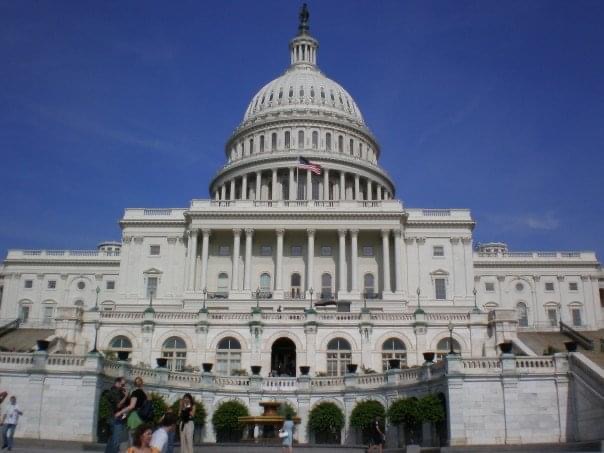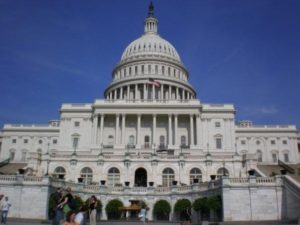
How Can Policy Help Us Create a Society that Reflects God’s Heart?
 How can policy help us create a society that reflects God’s heart? This is a critical question that Christians from all backgrounds and denominations should be asking ourselves today. To begin answering this question, I’d like to first take a look at a passage from the book of Matthew 25: 34-40. Here Jesus, as usual, says something profound and which applies to our society today. He says this, “Then the King will say to those on His right hand, ‘Come you blessed of My Father, inherit the kingdom prepared for you from the creation of the world. For I was hungry, and you fed me. I was thirsty, and you gave me a drink. I was a stranger and you invited me into your home. I was naked, and you gave me clothing. I was sick, and you cared for me. I was in prison, and you visited me.’ Then these righteous ones will reply, ‘Lord when did we ever see you hungry and feed you? Or thirsty and give you something to drink? Or a stranger and show you hospitality? Or naked and give you clothing? When did we ever see you sick or in prison and visit you?’ And the King will say, ‘I tell you the truth, when you did it to one of the least of these my brothers and sisters, you were doing it to me!’” In this passage, Jesus sets the framework for the justice work that needs to be done within our society. In meeting the needs of “the least of these” we are serving God and people by committing true acts of justice.
How can policy help us create a society that reflects God’s heart? This is a critical question that Christians from all backgrounds and denominations should be asking ourselves today. To begin answering this question, I’d like to first take a look at a passage from the book of Matthew 25: 34-40. Here Jesus, as usual, says something profound and which applies to our society today. He says this, “Then the King will say to those on His right hand, ‘Come you blessed of My Father, inherit the kingdom prepared for you from the creation of the world. For I was hungry, and you fed me. I was thirsty, and you gave me a drink. I was a stranger and you invited me into your home. I was naked, and you gave me clothing. I was sick, and you cared for me. I was in prison, and you visited me.’ Then these righteous ones will reply, ‘Lord when did we ever see you hungry and feed you? Or thirsty and give you something to drink? Or a stranger and show you hospitality? Or naked and give you clothing? When did we ever see you sick or in prison and visit you?’ And the King will say, ‘I tell you the truth, when you did it to one of the least of these my brothers and sisters, you were doing it to me!’” In this passage, Jesus sets the framework for the justice work that needs to be done within our society. In meeting the needs of “the least of these” we are serving God and people by committing true acts of justice.
To state a hard and unfortunate truth, we live in a society that has done much to marginalize and disadvantage many of God’s children. Over the course of American history, we have seen the U.S. government deliberately take legislative and administrative action to oppress entire groups of people in a response to certain cultural attitudes and misguided beliefs. Policies throughout our history have been used to remove Indigenous people from their homes. Jim Crow policies have caused much damage, distress and trauma to the black community and communities of color. I pose the following question to you. If policy can be used to harm, then why can’t it be used to heal? As Christians, we should be pushing our government to enact policies that help “the least of these”.
 When Jesus says in Matthew 25, “I was hungry and you fed me” it should make us think about nutrition policy and how we can eradicate food deserts within our communities. Through policies and programs that will encourage agricultural growth and ensure that disadvantaged communities receive fresh foods, we could feed entire neighborhoods of children and families. We should seek funding and partners in building grocery stores that stock fresh produce in the heart of urban areas. When Jesus says “I was a stranger and you invited me into your home.” It should jolt our minds towards equitable housing policy and how we can provide stable housing for those who are battling homelessness. When Jesus says “I was sick, and you cared for me.” It makes me think of how we can expand access to affordable healthcare to more individuals and families. When He says “I was in prison, and you visited me” it brings to mind potential second-chance policies and programs which can be utilized to rehabilitate and integrate prisoners back into society in a productive way.
When Jesus says in Matthew 25, “I was hungry and you fed me” it should make us think about nutrition policy and how we can eradicate food deserts within our communities. Through policies and programs that will encourage agricultural growth and ensure that disadvantaged communities receive fresh foods, we could feed entire neighborhoods of children and families. We should seek funding and partners in building grocery stores that stock fresh produce in the heart of urban areas. When Jesus says “I was a stranger and you invited me into your home.” It should jolt our minds towards equitable housing policy and how we can provide stable housing for those who are battling homelessness. When Jesus says “I was sick, and you cared for me.” It makes me think of how we can expand access to affordable healthcare to more individuals and families. When He says “I was in prison, and you visited me” it brings to mind potential second-chance policies and programs which can be utilized to rehabilitate and integrate prisoners back into society in a productive way.
 Let’s take a further look at our Justice System. Over the past few decades policies enacted at multiple levels of government have created systemic injustices such as the School-to-Prison Pipeline and Mass Incarceration, just to name two. The War on Drugs in the 1980’s followed by the “tough on crime” policies and rhetoric from politicians on both sides of the political aisle resulted in a disproportionate amount of black and brown people populating our prison systems. According to the Federal Bureau of Prisons, as of July 2021, 38.2% of inmates today are Black. Why is that number disproportionate? Because the latest Census data place the total number of African Americans in the United States at just over 13%. These statistics should alarm anyone who wishes to see the fair and equal treatment of people in our society. The Crack Epidemic devastated Urban America. Instead of providing rehabilitation, mental health and addiction services the government decided to lock people up and give them a mandatory minimum sentence. In most cases if not all, individuals of color would receive harsher penalties than their white counterparts for the same offense. This was a clear sign of institutionalized racism and implicit bias running rampant within our justice system.
Let’s take a further look at our Justice System. Over the past few decades policies enacted at multiple levels of government have created systemic injustices such as the School-to-Prison Pipeline and Mass Incarceration, just to name two. The War on Drugs in the 1980’s followed by the “tough on crime” policies and rhetoric from politicians on both sides of the political aisle resulted in a disproportionate amount of black and brown people populating our prison systems. According to the Federal Bureau of Prisons, as of July 2021, 38.2% of inmates today are Black. Why is that number disproportionate? Because the latest Census data place the total number of African Americans in the United States at just over 13%. These statistics should alarm anyone who wishes to see the fair and equal treatment of people in our society. The Crack Epidemic devastated Urban America. Instead of providing rehabilitation, mental health and addiction services the government decided to lock people up and give them a mandatory minimum sentence. In most cases if not all, individuals of color would receive harsher penalties than their white counterparts for the same offense. This was a clear sign of institutionalized racism and implicit bias running rampant within our justice system.
There are myriad of systemic issues we could expound upon in much detail. However, the previous brief example of our justice system should reveal that institutionalized and systemic injustice exists within our society. The good news is that since institutionalized injustice was something that was constructed, it can now be deconstructed. That does not mean we throw away every law and system we have. That would not be prudent nor realistic. Rather, we should combat the policies that went into effect to cause the injustices we see within our systems. We need to work towards making our systems work for everyone and not only work for certain groups based upon race, gender or socio-economic status. We must combat homelessness and the opioid crisis we are facing today but do so in a way that’s rehabilitative instead of punishment focused, which, was the mistake made in the 1980s and 90s. We must strive to give our children more opportunity to attend the school that would best meet their needs and propel them into their future. We should put first the needs of those who are less fortunate instead of catering to the extremely wealthy. We must keep pushing for everyone to have access to quality and affordable healthcare, as healthcare is a human right and not a privilege to be earned. We need to push for laws that will protect the right to vote instead of effectively disenfranchising people and pushing them out of the electoral process.

“A modern wooden church pulpit with microphone, brass lamp and closed bible.This file has been updated and replaced after its original upload as there was a problem with a square around the microphone which has now been resolved.A similar new image from the same location is now also available in a larger size:”
In American society, each of us have a role to play in creating a more perfect union. Our churches play a significant a role. In my opinion, the church should be leading the charge in advocating for policies that reflect God’s heart on every critical issue of our day; not only a select one or two. Our government and institutions react to what “We the People” demand. Clergy and Civil Rights leaders of the mid-20th century such as Dr. Martin Luther King Jr. and so many others demanded change and were able to accomplish it. As Reverend Dr. King once stated “The arc of the moral universe is long, but it bends toward justice.” Through enacting policies that address the critical needs of everyday people and “the least of these” we can create a more equitable and just society. We can create a society which I strongly believe reflects God’s Heart.
Sources:
https://www.census.gov/quickfacts/fact/table/US/PST045219
https://www.bop.gov/about/statistics/statistics_inmate_race.jsp
